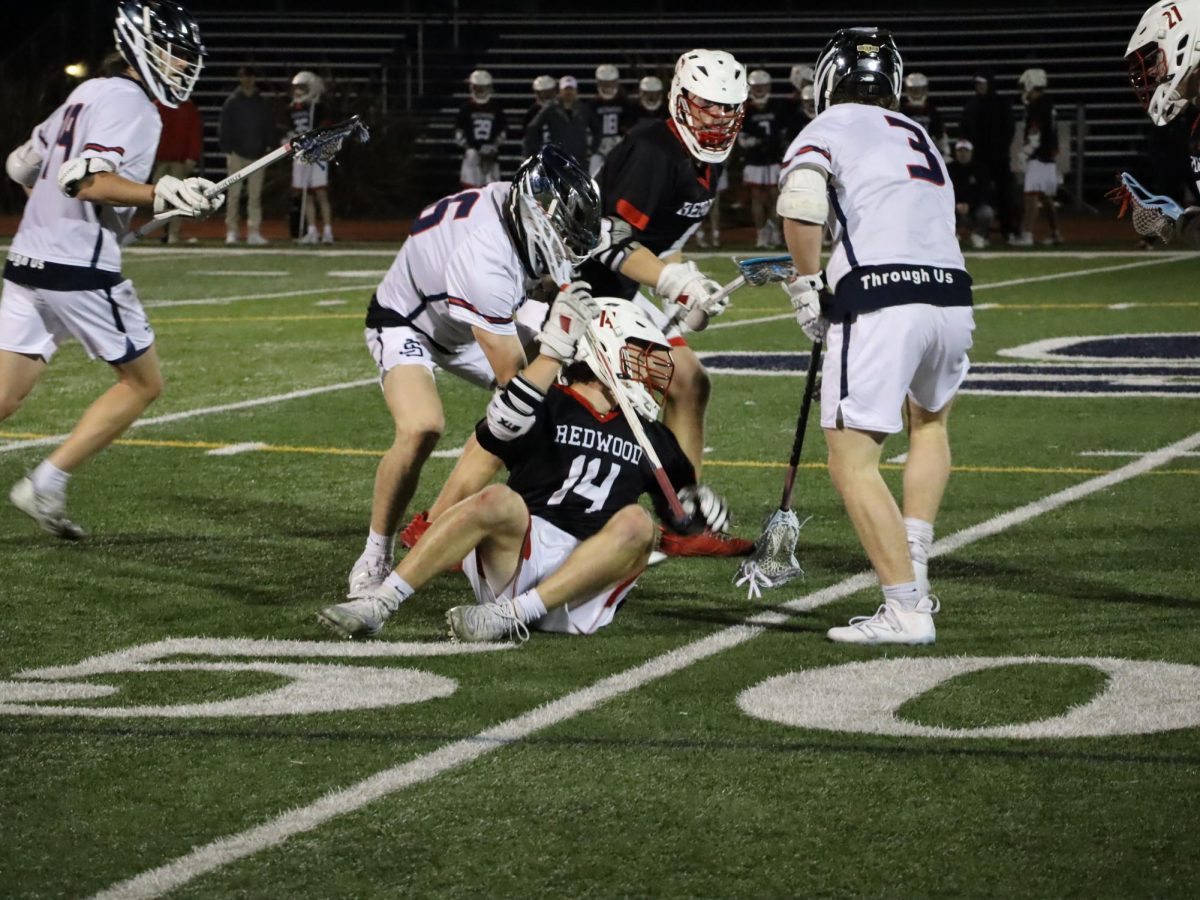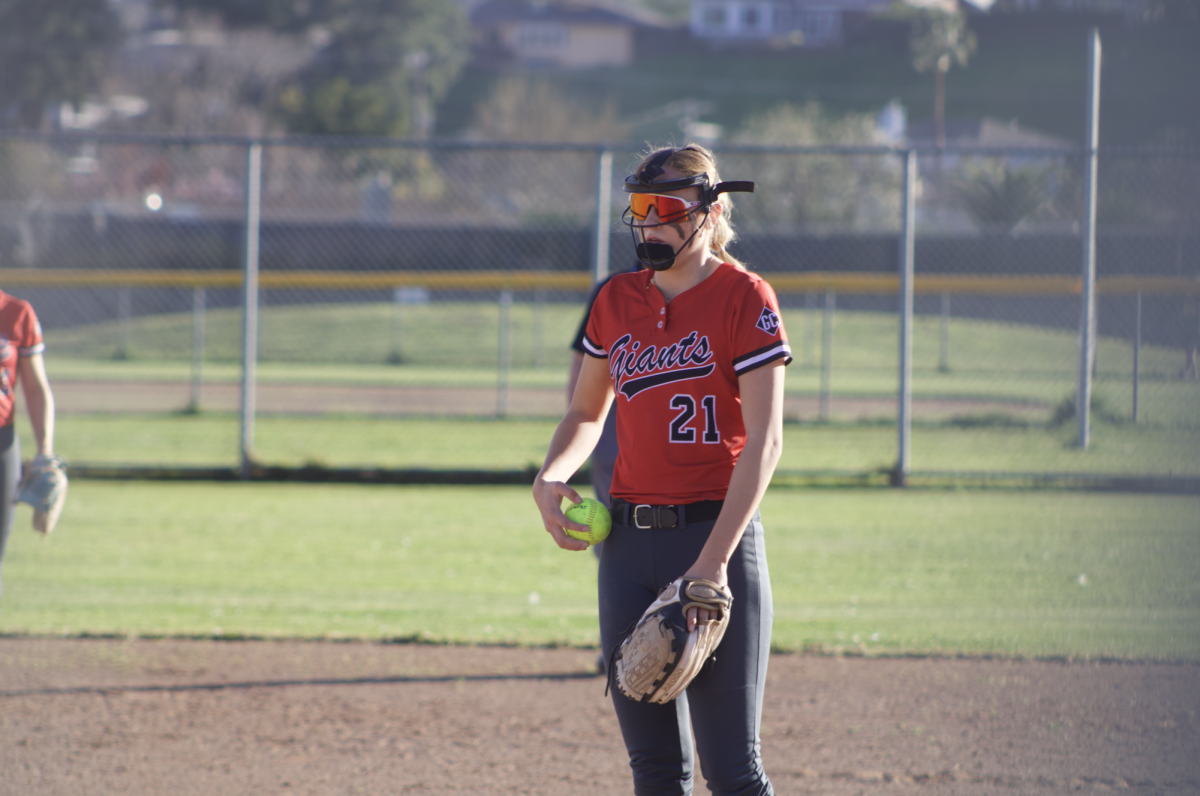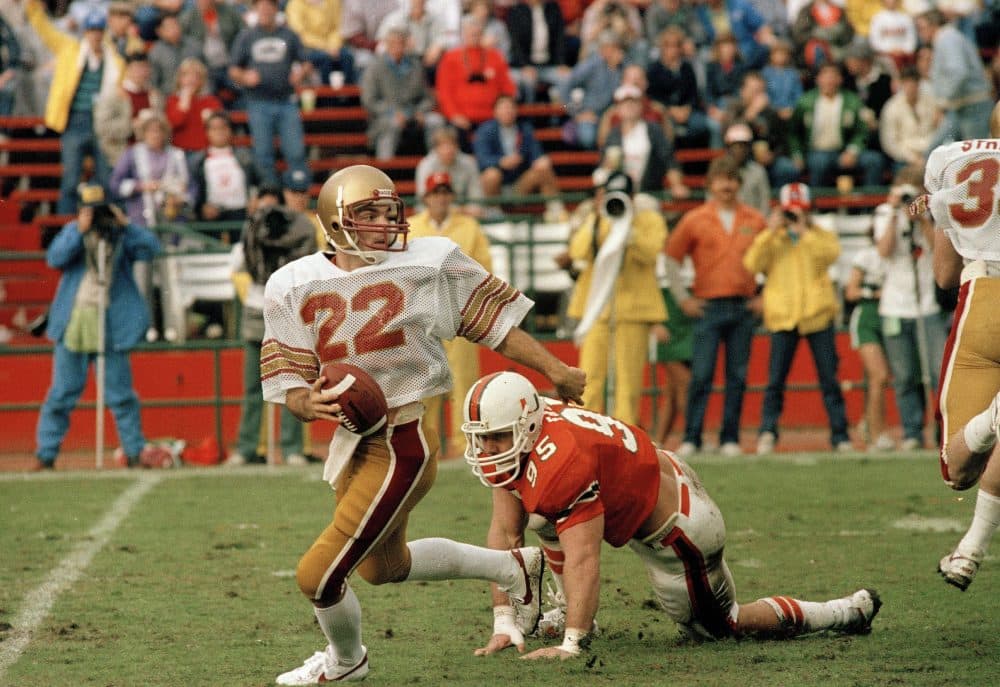Most children start off their early years playing sports. Teetering kindergartners are signed up for peewee football, clump together during their rec soccer practice or perhaps a particularly able six year old might manage to hit a baseball without a tee. After a few years, many of the kids will stop joining the teams, deciding instead to follow other hobbies that interest them. There soon-after, more players will drop from the sports, perhaps prioritizing academics or simply no longer wishing to play. Those still dedicated to their sports by the high school level will compete for a spot on a varsity team. Some, with the right combination of hard work and skill, may manage to play at such a level for more than just one sport.
For many students, this means extreme dedication and effort. For senior Nathaniel Kuffner, it means spending his average year jumping from sport to sport in order to be the most competitive he can be. Kuffner, who started playing soccer at age five, is going into his third year on the varsity team. Though Kuffner started later with lacrosse, beginning in eighth grade, he is going into his fourth year on the varsity team. Kuffner believes that his relentless dedication to the lacrosse and soccer teams was able to get him to that varsity level.

“I am a very hard worker and I am someone who is willing to do work that other people aren’t willing to do. Last year for the lacrosse team I got the coaches award because I was just kind of the go-to guy for all the things that needed to get done,” Kuffner said.
Being a multisport athlete does not come without challenge. According to Kuffner, one of the biggest burdens of playing multiple varsity sports is the lack of time.
“[Balancing my time] is definitely pretty difficult, but you just have to be really productive and good at time management so after practice I will go home, take a quick shower, eat and start working on homework right away,” Kuffner said.
Besides just balancing his academics, Kuffner also must balance the time he spends on each sport.
“The time I am playing soccer, I could be on my own, hitting the wall for lacrosse or going to the weight room. So even though playing multiple sports is good for cross training, if I was only playing one, I could invest more time in it and possibly become better,” Kuffner said.
Miles Squiers, a senior on the varsity lacrosse team with Kuffner as well as a player on the varsity basketball team, expressed a similar sentiment.
“I always thought playing lacrosse is going to prevent me from getting better for basketball because I’d always come back for basketball a little rough, a little rusty. [However] I’ve learned that it’s a big advantage because I’m always in shape once the sport starts for me, so I tend to look past that,” Squiers said.

Still, both Squiers and Kuffner feel that playing multiple sports helps them more than it hinders them. Besides just keeping in shape and translating skills, the sports teach the players lessons they can apply outside the field.
“[I learned] how to lead and how to not be antagonistic. Like knowing your players as if they are your friends. Like being open and understanding. I’ve learned a lot more social things from sports than I thought I would,” Squiers said.
Blake Atkins, the varsity lacrosse coach, feels that Squiers has learned this lesson.
“[Squiers is] the man, he’s always got a smile on his face, he’s one of the best competitors I’ve been around. He wants to win, he wants to help his teammates [and] he cares about the guys on the team,” Atkins said.
As well as acting like a leader, Atkins stated that playing multiple sports has helped Squiers to become a better competitor.
“It’s more awareness, it’s more field sense. We call it lacrosse IQ, but it’s really more sports IQ. [Squiers] steps onto the lacrosse field and already has a sense of where he is and that general awareness of where others are around you makes a big difference,” Atkins said.




!["I knew I wanted to be a writer. I wasn't a good student [at Redwood], but I wanted to be a writer, and I wanted to paint. I'm self-taught in all of it, which gave me an original voice," Paige Peterson said. (Photo courtesy of Paige Peterson’s website).](https://redwoodbark.org/wp-content/uploads/2025/02/ppeterson.png)








